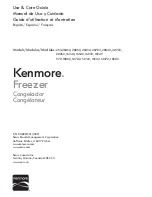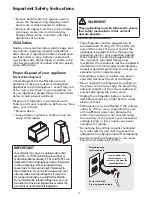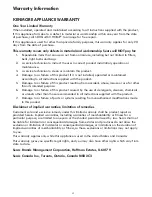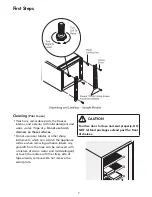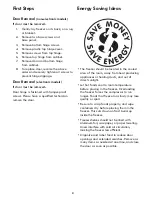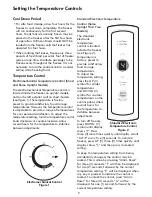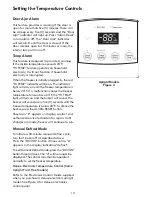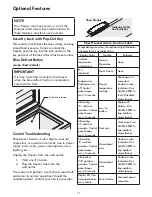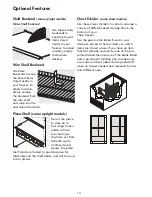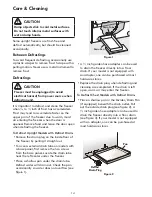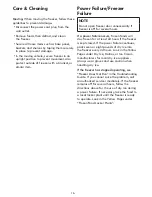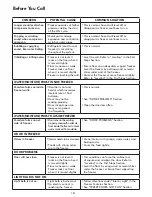
14
CAUTION
Damp objects stick to cold metal surfaces.
Do not touch inferior metal surfaces with
wet or damp hands.
Some upright freezers are frost-free and
defrost automatically, but should be cleaned
occasionally.
Between Defrostings
To avoid frequent defrosting, occasionally use
a plastic scraper to remove frost. Scrape with a
pulling motion. Never use a metal instrument to
remove frost.
It is important to defrost and clean the freezer
when ¼ to ½ inch of frost has accumulated.
Frost may tend to accumulate faster on the
upper part of the freezer due to warm, moist
air entering the freezer when the door is
opened. Remove food and leave the door open
when defrosting the freezer.
To Defrost Upright Models with Defrost Drain:
• Remove the drain plug on the inside floor of
the freezer by pulling it straight out.
• To access external drain tube on models with
a base panel, first remove the two screws
from the base panel. Locate the drain tube
near the left center under the freezer.
• Place a shallow pan under the drain tube.
Defrost water will drain out. Check the pan
occasionally so water does not overflow (see
figure 1).
CAUTION
Freezer must be unplugged (to avoid
electrical hazard) from power source when
defrosting unit.
Defrostings
• A ½ inch garden hose adapter can be used
to drain the freezer directly into a floor
drain. If your model is not equipped with
an adapter, one can be purchased at most
hardware stores.
• Replace the drain plug when defrosting and
cleaning are completed. If the drain is left
open, warm air may enter the freezer.
To Defrost Chest Models with Defrost Drain:
• Place a shallow pan or the Divider/Drain Pan
(if equipped) beneath the drain outlet. Pull
out the outside drain plug (see figure 2). A
½ inch garden hose adapter can be used to
drain the freezer directly into a floor drain
(see figure 3). If your model is not equipped
with an adapter, one can be purchased at
most hardware stores.
Drain Pan
Drain Tube
Figure 1
Defrost
Drain Plug
Pan
Figure 2
Care & Cleaning

